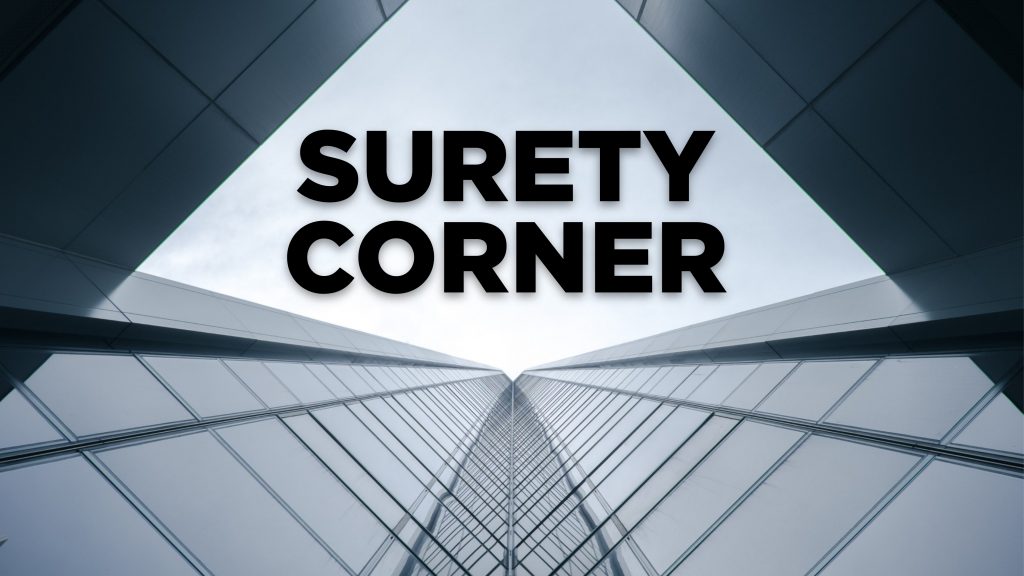Despite the best intentions of contractors, consultants and project owners, disputes in construction remain quite common and are often unavoidable. Disputes most commonly arise due to disagreements surrounding the scope of work often caused by design issues, possible defects in the work and the construction schedule. Disputes can be costly for all parties involved and may lead to delay claims, protracted lawsuits and in some cases surety bond claims.
Recently with the rollout of the new CCDC 2 (2020) contract, there has been a lot of renewed talk in the industry about carefully reviewing contracts including supplemental conditions. The consistent feedback we hear is that contractors must do a better job of contract review to avoid issues down the line. Ed Chassé, a senior surety and fidelity bond claims adjuster with BBCG Claims Services, advised,
“In my view the best way to avoid a claim is to make sure you know what your contract says and
adhere to it. After decades in the industry, it still amazes me how often a contractor is unaware of the provisions of a contract, particularly the provisions that can hurt them.”
He further added, “Delay is probably the biggest single issue leading to default notices. If there is a delay beyond the contractors’ control, they need to abide by the terms regarding the provision of notice to the owner. We recently saw a court case where the contractor lost out on what could have been a considerable sum for delay due to their failure to comply with the notice provisions of the contract. Contractors should also be aware of whatever dispute resolution mechanism is built into the contract and follow it. Most of these do not allow for a stoppage of work while the dispute is being resolved. Stopping work is almost guaranteed to result in a claim to which there may be no defence.”
While understanding your contracts is key, proper documentation is equally important. We no longer live in a world where verbal agreements are enough despite the best intentions of all parties.
As noted by Andrew Rohmer, assistant vice-president of surety at Trisura Guarantee, “communication and documentation are essential in preventing disputes or delays, or at the very least they prepare you if issues do arise. Documenting conversations with written correspondence is crucial to avoid relying only on what was communicated verbally. Unfortunately, disputes happen. Generally, the side that has the documentation to support their position will win the day. Understand your options available under the contract and how they need to be communicated (time extensions, mediation, arbitration, etc.) and be prepared to act quickly to protect your rights.”
The reality for so many owner operators out there, however, is that time is precious and limited. Contractors are busy each and every day often managing multiple jobsites, while also trying to stay active tendering future works to ensure they maintain a healthy backlog. Taking the time to properly document your projects and to review each contract carefully can be quite time consuming and is too often pushed to the side for the next urgent task. Thankfully, the industry has seen the development of some great real time project management software tools to help alleviate some of this pressure.
Zulqernain Malik, a former 20-year contractor, founded and developed a software called Smart Build to help contractors tackle these challenges based on his own industry experiences. As a former builder himself, he offers a unique perspective on what builders can do to protect themselves in the event of a dispute and even to avoid disputes in the first place. Zulqernain shared his best practices to avoid a dispute.
“Don’t be shy to get paid and make a profit. That is why you are in business. Make sure you understand the tender documents including working conditions, schedule, resources required and your ability to meet those. If there are more than three addenda, that should be a warning that the documents are incomplete and could signal the client didn’t manage design well,” he said.
“Make sure you know your trades before the tender closes. Sending emails doesn’t get results, pick up the phone. Be smart and manage the project, don’t react. Have systems in place. These days Word, Excel and Outlook are not smart tools. Know your paperwork and make sure you price changes immediately. Focus on closing out the project and don’t let things drag on. If you are not investing in smart construction technology then you are already behind. Just remember, most people didn’t know Zoom last year.”
While construction disputes are often unavoidable, knowing what steps you can take within your contractual rights is a great starting point to avoiding any longer-term issues. Maintaining strong and clear communication along with proper documentation and record keeping is key to the long-term success of any project. If you are not already doing so, utilize some of the great technology out there to stay on top of your project management and documentation.
However, if a dispute situation does arise and you are unsure how to proceed, then we suggest you speak with your team of advisers, including your surety broker. Utilize your team and their experiences to help shape your response.
Jamie Collum is the vice-president of construction for FCA Insurance. He has delivered numerous seminars and presentations on construction bonding and general industry updates in Ontario to various construction associations over the years. Andrew Cartwright is the vice-president of surety for FCA Insurance. With over 10 years of experience as an RVP of a large national surety company, Cartwright uses his expertise to help FCAs clients manage and build their surety capacity.
Send comments and column ideas to editor@dailycommercialnews.com.











Recent Comments
comments for this post are closed